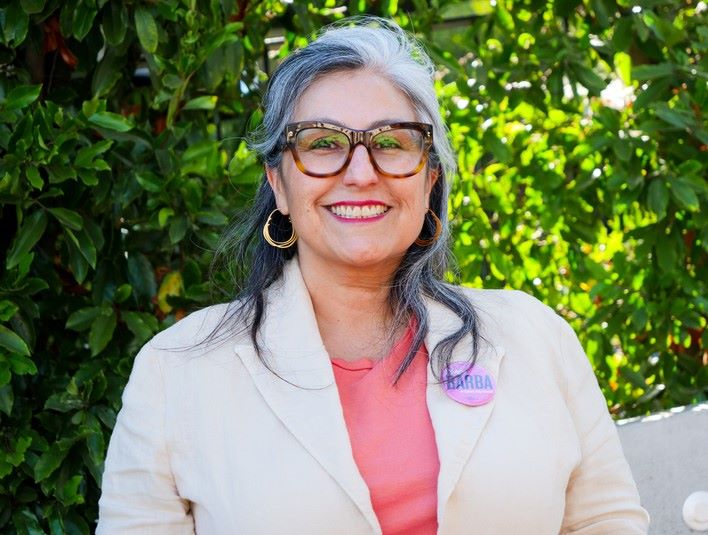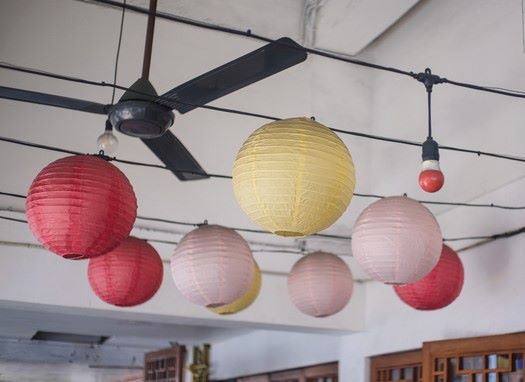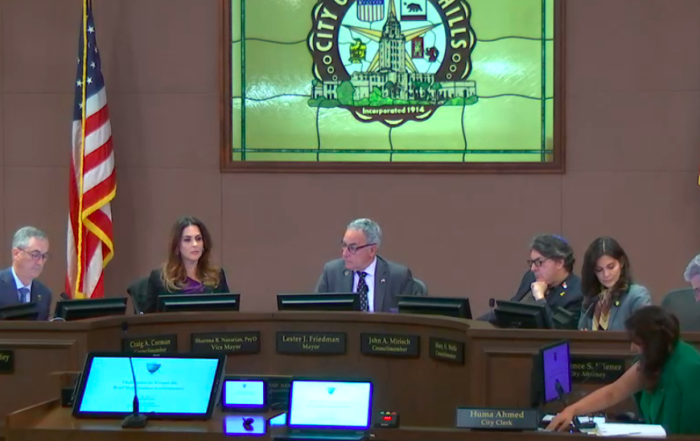While her past shaped what she is today, Nancy Barba is always looking toward what the future could be.
A mom whose grandparents came to the United States through the Bracero Program that allowed Mexican citizens entrance to the country to work in agriculture, she is running in the Culver City Council race as potentially the first Latina council member in the city’s history. Her journey helped define who she is, but her thinking as a candidate is rooted in the future.
“I want people to think with a vision in this election for our city,” Barba told Westside Voice. “In our nation and our city, it is okay to think bigger and dream differently.”
Her policies are focused on an idea, a vision for a Culver City that she wants to leave behind for future residents.
“We shouldn’t take actions in which we don’t consider people seven generations down the line,” she said.
To Barba, that means working to better several aspects of the Culver City community, one of which is the housing umbrella. She believes that the solution to tackle the housing crisis is simple: building housing to create more affordable housing.
This cheaper housing created from increased supply is known as Naturally Occurring Affordable Housing (NOAH), a phenomenon examined by the UCLA Lewis Center for Policy Studies in 2022. NOAH was defined in UCLA’s study as “an existing unsubsidized apartment unit offered at a rental price that is at or below the 60 percent Area Median Income level defined by the California Tax Credit Allocation Committee for Los Angeles County.”
A report by the California Housing Partnership released in March 2023 showed there were 863,934 naturally occurring affordable homes in the state, but this number is volatile. Los Angeles County has lost more than 20,000 NOAH since 2020, and 85,350 properties — 31.1 percent of the NOAH in the county — were at risk of losing their affordability without subsidies to support the property owners providing lower rents.
She also believes in property owners creating their own opportunities on the land. Barba herself owns an Accessory Dwelling Unit (ADU) she recently built with her husband that they rent to tenants long-term. Some of her neighbors also have ADUs on their property and have shown Barba the earning potential of short-term rentals, but her belief in housing opportunities led her to instead provide a year-long lease for her family’s ADU.
“I see my neighbors putting their ADUs up for short-term rentals like Airbnb, and they’re making $300-$400 a day,” Barba said. “That’s not what I make, but that’s what it means to be pro-housing.”
Barba says ADUs alone are not going to solve the housing crisis, but said that their creation can contribute to the next generation of affordable housing.
“Anyone that thinks that we’re going to achieve rental unit affordability through ADUs is not being realistic,” Barba said. “But what will happen is that creating more housing will increase the supply, so people that can afford higher cost units will move into them.”
For the city’s unhoused residents, Barba believes in creating safe places for them to sleep and exist while providing interventions for people experiencing various levels of difficulty in their battle with homelessness. However, Barba argued that while the site is doing great things, the money put into Culver City’s Wellness Village is an inefficient way to tackle the crisis.
“It is wonderful that we have that available,” she said of the Wellness Village, “but for about the same amount of money, you can build a building.”
She suggested a similar but less cost-intensive program in Safe Overnight Parking for people to sleep in while advocating for interventions at all levels, not just for people at their lowest.
“It is tremendously helpful to intervene to people that still have a car,” Barba explained, “because they are more likely to still have a job and are more likely to face other medical and psychological needs like depression and substance abuse.”
Another core principle of Barba’s campaign is ensuring that people using all forms of transportation in Culver City can do so safely. She hopes to improve the ability of those using transportation other than cars to get around the city, proposing ideas like mobility infrastructure on Jefferson Boulevard and Sepulveda Boulevard.
Barba argued that the current state of infrastructure ingrained into our culture is so focused on vehicles that changes like the recent MOVE Culver City project can seem more radical than they are in reality.
“When we’re in a culture that has traditionally given almost everything to cars, any reduction of that feels like an assault on our way of life,” Barba said. “We need to explore internally and think about how we want to get from here to where we need to be.”
MOVE Culver City is one of the city’s tools that has been the center of recent mobility conversations, but Barba argues that it is not the only one the city should be focused on.
“I think the conversation has become stagnated and stuck there,” Barba said of MOVE Culver City.
Pedestrian improvements in Fox Hills are one area where Barba wants to focus. She argued the area as a whole — given a significant increase in allowable density in the city’s most recent zoning update — should get more attention. She also proposed looking into bike lane infrastructure in the neighborhood and agreed with the sentiment that Fox Hills residents are not being included in discussions as they should.
Barba believes in actively representing all of the communities and cultures in the city and making intentional policy decisions informed by data, even if they go against the status quo.
“Women didn’t get a vote by just talking about it,” Barba said. “We have to do the work.”
For Barba, the mobility conversation returns to her idea of planning with a vision. The health of many generations of Culver City residents that will come after her time helps guide Barba’s decisions.
“If the well-being of future generations is what informed our policy, we wouldn’t have these big discussions about a single street,” she argued.
Improving the well-being of the environment in Culver City and beyond is another of Barba’s priorities. Her work as Director at energy efficiency and decarbonization firm Frontier Energy informs her belief that turning away from the natural gas-powered air and water heating systems for buildings throughout the city in favor of more climate-friendly electric heaters is important for its long-term health.
Barba was concerned with lost energy from state-wide energy curtailments — deliberate reductions in energy production to align with supply and demand — which have increased exponentially over the past decade. One of the largest renewable energy providers in California reported curtailing over 700 gigawatts of energy in March 2024, a significant jump from the less than 50 gigawatts curtailed in March 2015 by the company.
These increases have amplified in recent years, according to that same report.
“Over the course of April, we’ve seen 23 percent of solar production curtailed,” the report dated April 25 read. “This is a steady increase compared to previous years, when 2022 and 2023 saw 17 percent and 20 percent of solar production being curtailed, respectively, indicating that the problem is worsening.”
Barba argued that electric heating would help increase the use of electricity at times of the day when curtailments for solar energy are at their highest, more efficiently using the energy grid while reducing a building’s carbon footprint. Electric water heaters can act as batteries and use energy accumulated to preheat the home’s water supply while electric air heat pumps could cool your home with energy from earlier in the day, Barba said.
“It is a way of shifting demand on our grid from the peak hours — which are 4:00 p.m. to 9:00 or 10:00 p.m. during the summer — to the middle of the day when there’s an abundant amount of solar energy,” she explained.
While the environment does guide her policies, she hopes to release control of some of the city’s most important green spaces to the people. Barba believes that the Citywide Parks Plan process should be turned over to the public. She emphasized that the Inglewood Oil Field should be closed as soon as possible, but that other decisions should be informed by public input.
“I don’t have a single vision that I’m thinking,” Barba said of the Citywide Parks Plan process. “It’s more that we need to be informed with a lens to equity across our city.”
Each of these elements put together makes Barba’s vision for what Culver City could be, and she hopes that voters will think of what their hopes for the future are as they vote.
“I encourage voters to ask their electeds and their candidates what vision are they trying to create,” Barba said, “and who do they see in that vision?”
Photo by the author.
Stay informed. Sign up for The Westside Voice Newsletter
By clicking submit, you agree to share your email address with Westside Voice. We do not sell or share your information with anyone.








